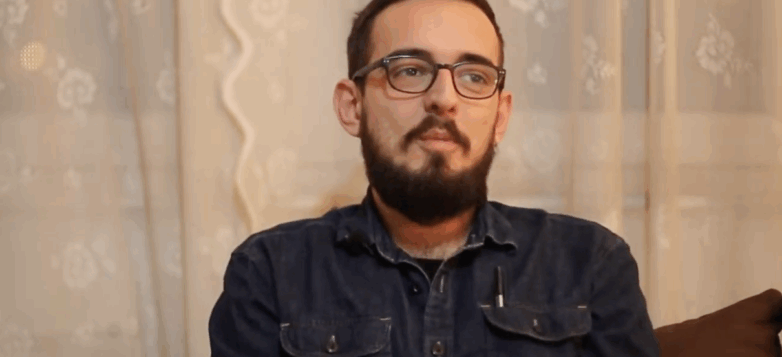Adrian Bytyqi (1992), political scientist, Prizren
Adrian Bytyqi: I am Adrian Bytyqi. I was born on 1992, on August 2, which means I am 25 years old and… I mean, I come from Prizren.
Aurela Kadriu: Do you remember the summer of 2007?
Adrian Bytyqi: The summer of 2007?
Aurela Kadriu: Uhm, it is the summer before the declaration of independence.
Adrian Bytyqi: The summer of 2007 before the declaration of independence for me wasn’t, there wasn’t anything concrete that I remember specifically connected to the independence of Kosovo, or the steps towards the independence. But there was a euphoria present, a, a vibe that something will happen, it is going to happen, is it not going to happen? How? Promises, not promises, obviously in the context of politics back then that is still more or less today’s politics. The trend, the flavor, the tone, the color, in that way, it isn’t something specific. But since I am from Prizren, during the summer Dokufest prevails as a main memory and a reference so… I wouldn’t say that it had a very big impact in that aspect.
Aurela Kadriu: Do you remember when you first realized or when you first heard that Kosovo will declare independence?
Adrian Bytyqi: I don’t remember when I heard it for the first time, because for me even at the time when it was declared, as a thought and as an action, it wasn’t something purely joyful. Because with the declaration of independence, for me at least, even though I was 15 years old, it was a thought connected to a total responsibility for ourselves that we now had. Also that fact that it was declared the way it was declared, it wasn’t pure in my opinion for, for, for… Even though the euphoria that followed it was, “We’re finally a state.” But it isn’t how I would imagine it then to be, I mean it wasn’t exactly, exactly how I thought. However, when I heard it was happening, of course I was happy, but not to that level, to the level of naïve happiness. Happiness but also sadness and fear of what is going to happen to us now that we are responsible for ourselves.
Aurela Kadriu: Where were you on the day of the declaration of independence?
Adrian Bytyqi: On the day of the declaration of independence I was at home. My house is at Shadërvan, behind the Orthodox Church, and I remember the road I took to the Sinan Pasha Mosque and when I saw the flags, the national flags, specifically the back and red flag. There were a lot of people, a lot of plis, a lot of euphoria, a lot of joy, Hashim Thaçi declaring independence on every possible screen, 15:30pm, that was engraved in that reality even today for those who remember it better. Yes… Celebrating, the way, the way the 28th of November should maybe be celebrated, but that never was, that was the independence of Kosovo, on that day at least.
Aurela Kadriu: What did you do, did you celebrate? If yes, where did you celebrate?
Adrian Bytyqi: No, no. Personally, I am a little obsessive because of, it is not that I react, what I think or what I feel about the outside world. It was okay for me too. “What now? What is going to happen now? Is it really like this? Are we going to continue with these people?” Because if we take into consideration the reality that prevails even today, and prevailed back then also, it is not that independence was brought by people who had the best image and they were not the most supported by people. To me, at least, it seemed like an ad hoc and rushed decision. It was good that it happened, but I wouldn’t have wanted it to happen like that and with those people. I think that the will and the sacrifices of the people that happened until now deserved much more, with someone else rather than how it happened. But still, it’s okay.
Aurela Kadriu: Did you watch, at 3:50 pm, where were you? That is the time when the independence was declared, I mean did you watch it live? Or did you watch it later?
Ardian Bytyqi: No, I watched, I watched it live. I watched it live, I watched it on television. I mean, we were in Prizren. It was an interesting moment, but as I said earlier, not that much. At least for me, it was more joy mixed with fear and worry about tomorrow, rather than the pure joy of the people who fought a lot and sacrificed a lot and finally got to that point. It isn’t, it wasn’t rewarding in the way I had hoped it would be. And I think, I wouldn’t want to add anything else, because I don’t think I can say anything more…
Aurela Kadriu: Thank you very much.
Ardian Bytyqi: …in this regard.
